Name of the environmental zone: Environmental Zone Hamburg Max-Brauer-Allee (NOx) - Germany
Date of entry into effect of the zone: 31-05-2018
Type of environmental zone: Permanent
Not allowed to drive (temporarily): Information currently unavailable
Not allowed to drive (permanently): Vehicle class: car, camper (M1), van (N1), truck (N2, N3)
Fuel type: diesel
Euro standard: 0-5
Fines: 25-75 €
Area/extension of the environmental zone: The environmental zone comprises a 600-metre section of the road Max-Brauer-Allee between Julius-Leber-Straße and Holstenstraße.
Contact of the environmental zone and exceptions: Information currently unavailable
Exemptions: Residents, Disabled vehicle, Fire brigade, Patient transport, Vintage car older than 30 years, Police car, Public bus, Taxi and Ambulance
Name of the environmental zone: Environmental Zone Hamburg Stresemannstraße (NOx) - Germany
Date of entry into effect of the zone: 31-05-2018
Type of environmental zone: Permanent
Not allowed to drive (temporarily): Information currently unavailable
Not allowed to drive (permanently): Vehicle class: truck (N2, N3)
Weight: > 3.5 t
Fuel type: diesel
Euro standard: 0-5
Fines: 25 - 75 €
Area/extension of the environmental zone: The environmental zone covers the entire Stresemannstraße.
Contact of the environmental zone and exceptions: Information currently unavailable
Exemptions: Residents, Disabled vehicle, Fire brigade, Patient transport, Vintage car older than 30 years, Public bus, Waste collection vehicle, Taxi and Ambulance
Diesel driving bans (NOx)
Do I need stickers or registrations?
Currently, no sticker or registration is required for the diesel driving bans. However, there are considerations and plans to introduce a blue sticker. Even without a sticker, it is essential that the European standards and rules are observed in order to avoid penalties. Otherwise a fine of 25 -75 Euro plus handling fee is to be expected.
How do I recognize the low emission zone?
For the diesel driving ban zones, traffic signs No. 251 "Ban on motor vehicles" and/or No. 253 "Ban on motor vehicles over 3.5 t" with an addition for diesel vehicles "Diesel up to Euro 5/V" will be used. Petrol vehicles may also be affected. This is indicated by the additional sign "Petrol up to Euro 2/II".
In our Green Zones app we have a detailed map of each low emission zone. So you can easily see the boundaries and avoid penalties.
Are there other NOx zones in Germany?
Yes, a lot of them. With over 80 different environmental zones, Germany has one of the most in Europe.
In our Green Zones App we have gathered together all the low emission zones in Europe and presented them clearly.
Electric cars
Is there a sticker for electric cars?
Yes! However, the sticker for electric vehicles is not intended for everyone. If the vehicle is registered in Germany, the last character on the license plate can be an "E". However, if the vehicle is registered abroad, an electric sticker (E-sticker) is required.
What advantages do I have with an E-sticker?
The E-sticker gives you various advantages. Depending on the municipality, there are various advantages, such as the use of bus lanes, free parking on the road and at electricity charging points, as well as the possible use of otherwise closed roads.
Do I need a green environmental sticker despite the E-sticker?
Yes, every car, no matter whether it is being driven on with petrol, diesel or electricity, requires a green environmental sticker according to the law. The E-sticker also entitles you to additional advantages over non-electric vehicles. The 35th BImSchV does not provide a separate paragraph for electric vehicles, which regulates them as an exception. Therefore: If an electric vehicle drives into a green environmental zone without a green sticker, a fine of 80 € + approx. 25 € handling fee must be expected.
Good to know...
All current driving bans and further information are available in our Green-Zones App.
Charging at streetlights: an expensive experiment with limited benefits?
The challenge of electromobility is not only the purchase of the vehicles, but also the provision of a nationwide charging infrastructure. The Berlin start-up Ubitricity has come up with a creative solution: converting street lamps into charging stations. But the reality is sobering. According to current figures from the Berlin Senate, not even one in ten streetlights is suitable for conversion. In addition, the costs are considerable at 6000 euros per conversion (without network expansion).
France: scrappage scheme 2.0?
With a unanimous vote, the reuse of cars originally destined for scrapping was decided in favour of the country's most vulnerable citizens. While the intention behind this measure is respectable, its implementation leaves many questions unanswered and raises serious concerns about its environmental impact.

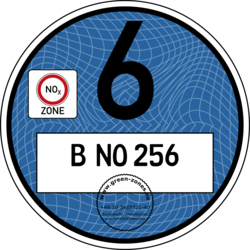
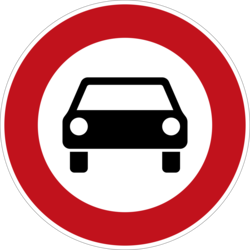
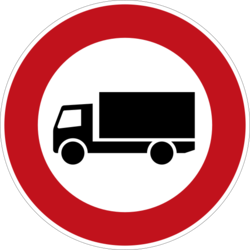
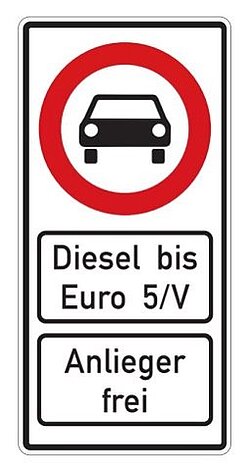
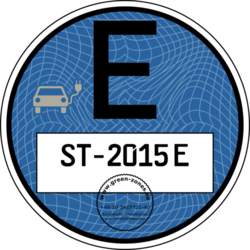
![[Translate to Englisch:]](https://www.green-zones.eu/fileadmin/_processed_/0/9/csm_screenshot_2024-04-18_080709_d8768b8407.png)
![[Translate to Englisch:]](https://www.green-zones.eu/fileadmin/_processed_/5/2/csm_screenshot_2024-04-15_132436_4025f02de7.png)